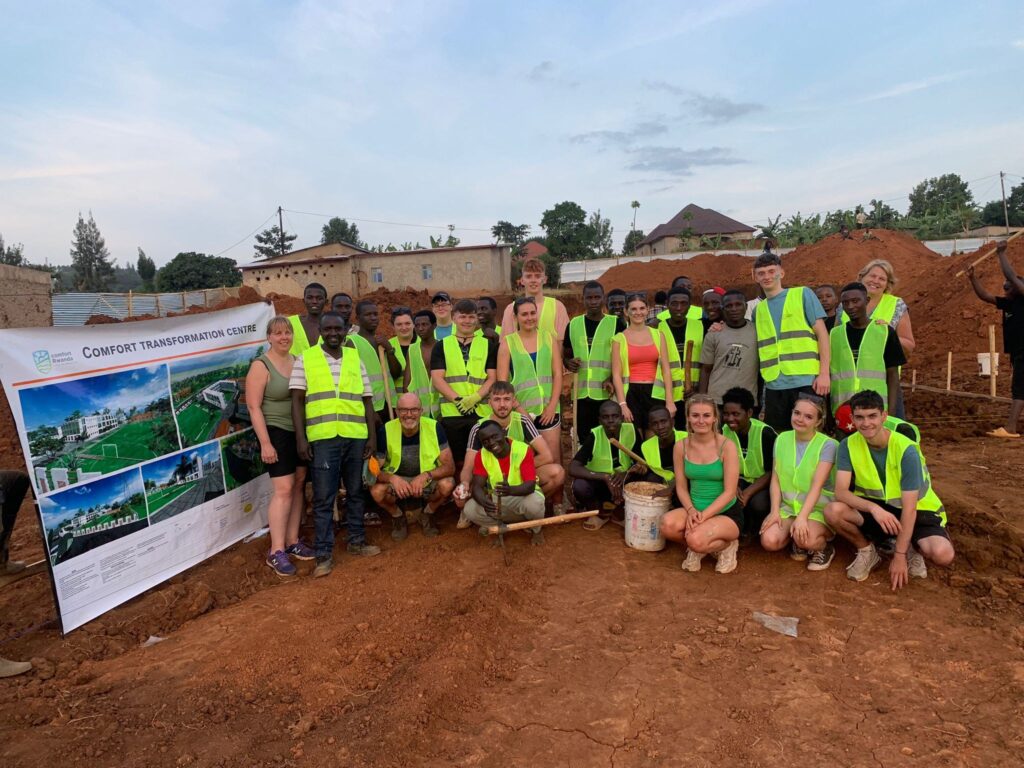This past June, Arbroath Academy students spent two weeks in Rwanda working with the charity Comfort International. Ten students and three teachers fundraised for two years in order to finance the trip. In Rwanda, we worked with Comfort International and their Rwandan partners; Comfort Rwanda and Good News, in order to make a difference in local communities and schools.
We arrived late Friday night to the hustle and bustle of Kigali. The 40-minute drive to our guest house was like nothing anyone had ever experienced before. We were told there are traffic rules but there just seemed to be cars, bikes and people going in every direction.
On our first full day we spent the morning/early afternoon with the Gasanze Street Kids. Six years ago a team from our school helped find the street kids that were living on the city rubbish dump. We heard how many of the kids found a new life and how they have been looked after by the project. Many of them are now graduating from the project and have even bought land and built homes. The day was spent sharing stories, playing games, face-painting and preparing lunch for the kids. We then went to the Transformation Centre which is currently being built. This site will support street kids from different projects, as well as vulnerable mums and babies, providing food, clothing, education, health care and a sense of family. Most of the construction is being done manually and the students joined in the hard work digging, carrying sandbags and preparing the land in the hot African sun.
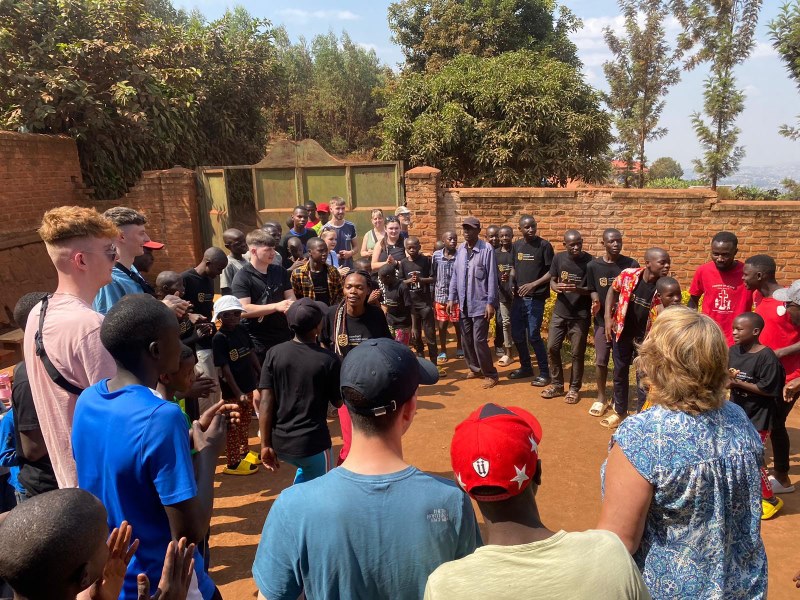
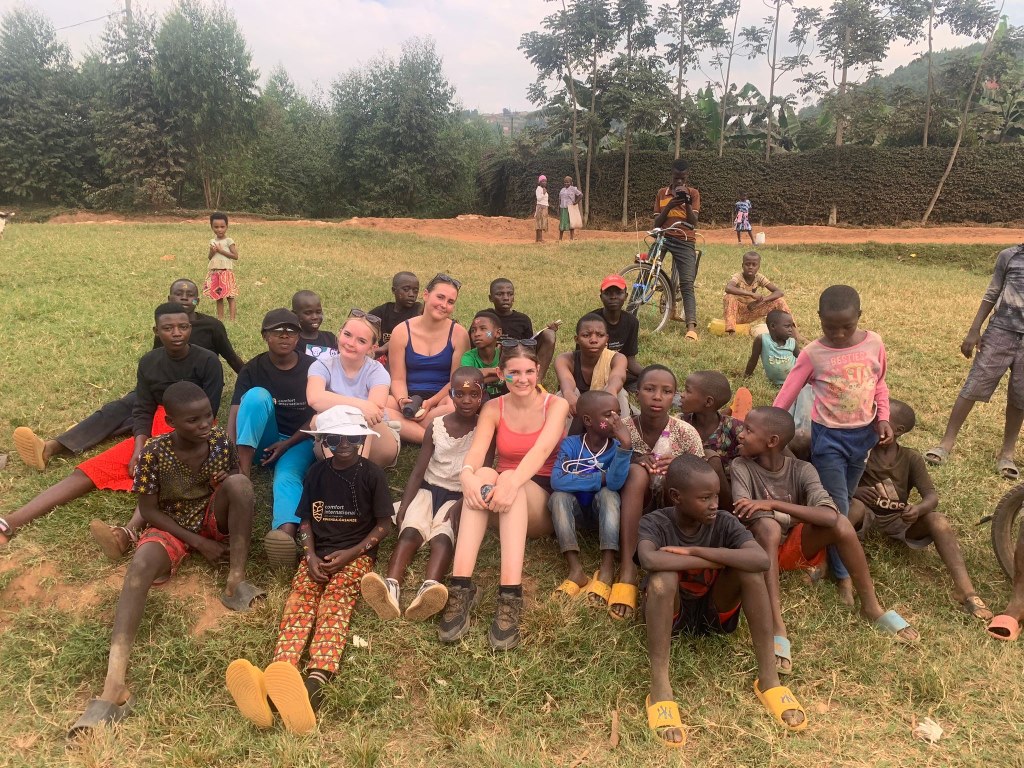
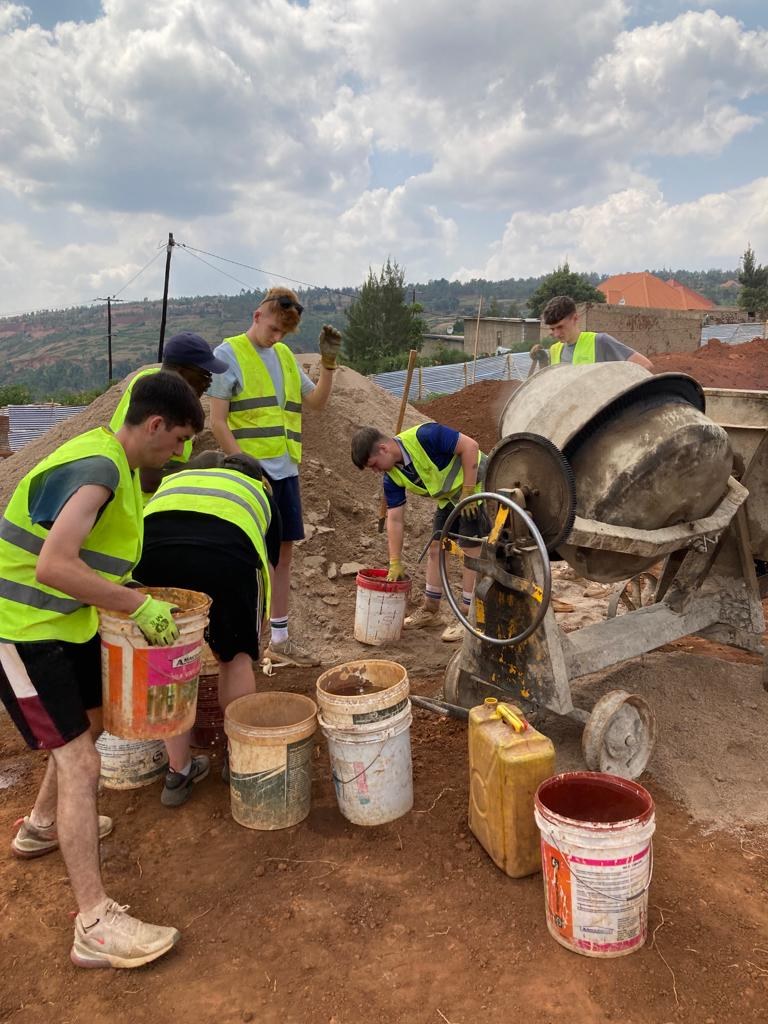
On Sunday we started the day by visiting a local church. We were given a warm welcome and introduced to the members of the community. We then returned to the Transformation Centre where we helped serve lunch for the workers and then continued with manual labour until the sun went down.
On Monday we started the day visiting the Comfort Babies project. This was the highlight of the trip for many of the students. We visited the nursery classrooms, spent time with nursery teachers and most importantly played and engaged with the children. Activities included a parachute we had brought to play with as well as a lot of dancing! We then visited a local vocational training school where they taught skills such as sewing and hairdressing.
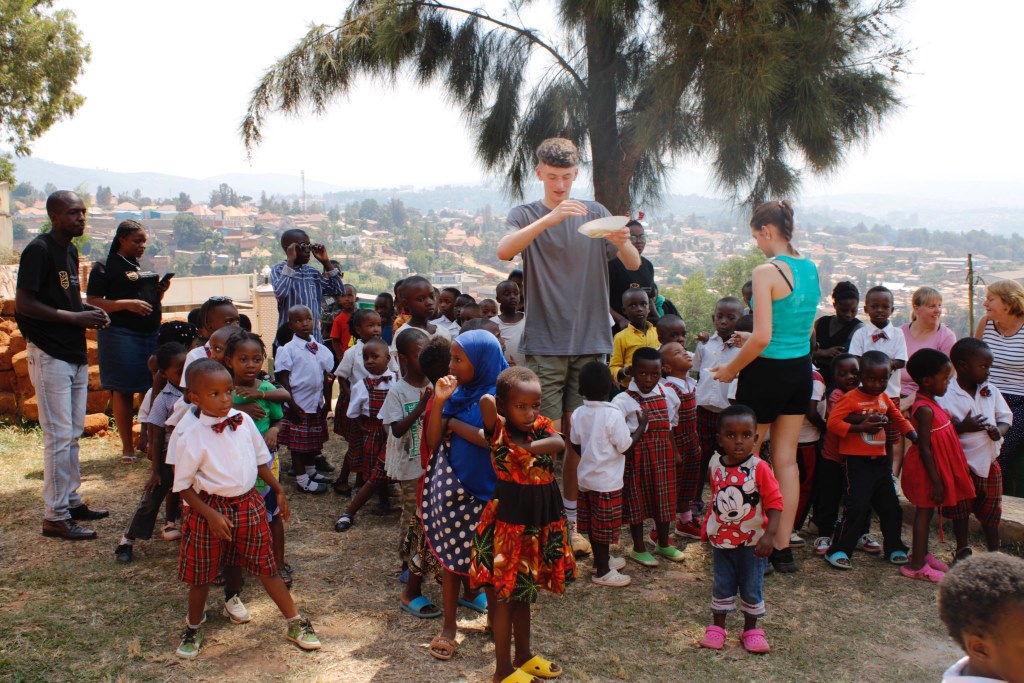
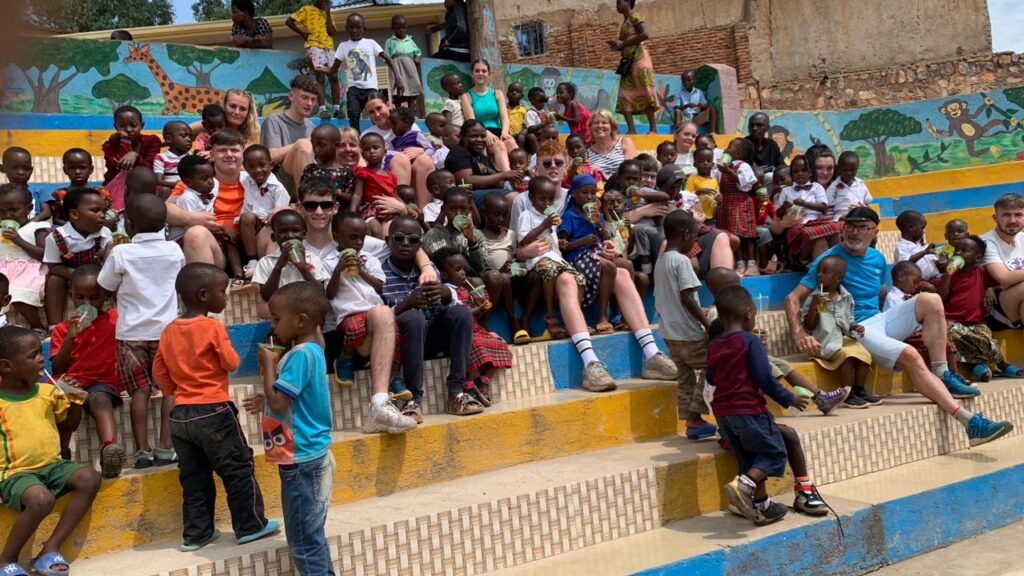
Tuesday was an emotional day. We visited the Gisozi Memorial and learned about the Rwandan genocide of 1994 in great detail. We heard stories that will stay with us forever. In the afternoon we were visited by a Genocide Survivors’ Group, many who travelled great distances to be with us. They shared their stories and how the project has helped them move on from the genocide.
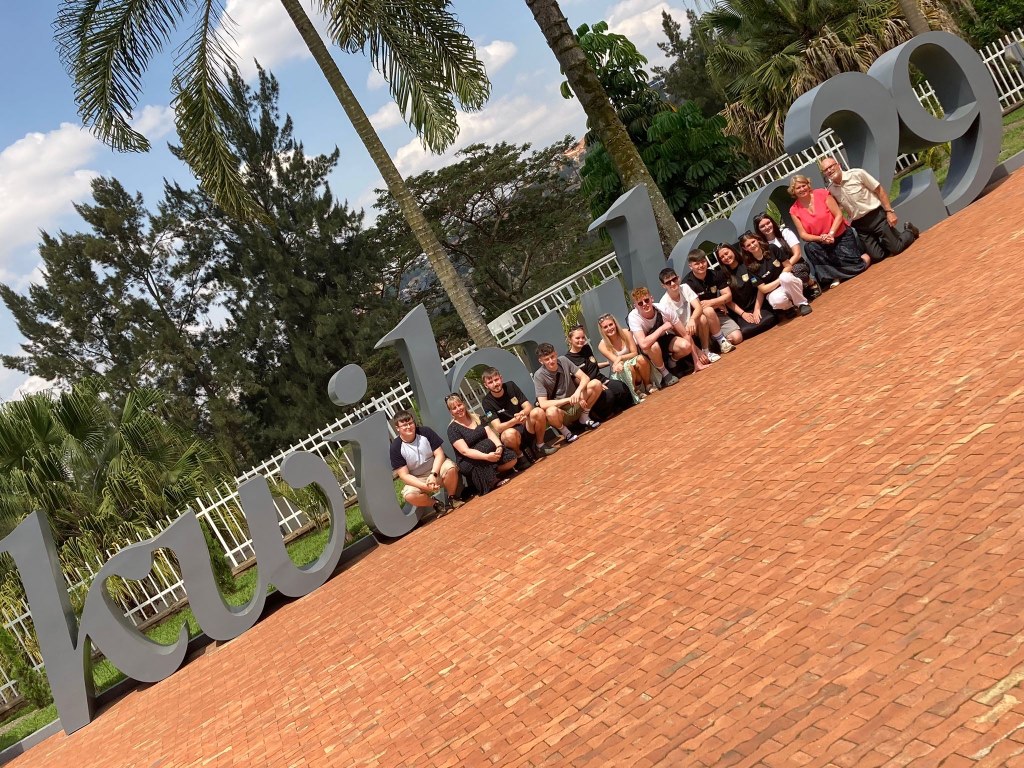
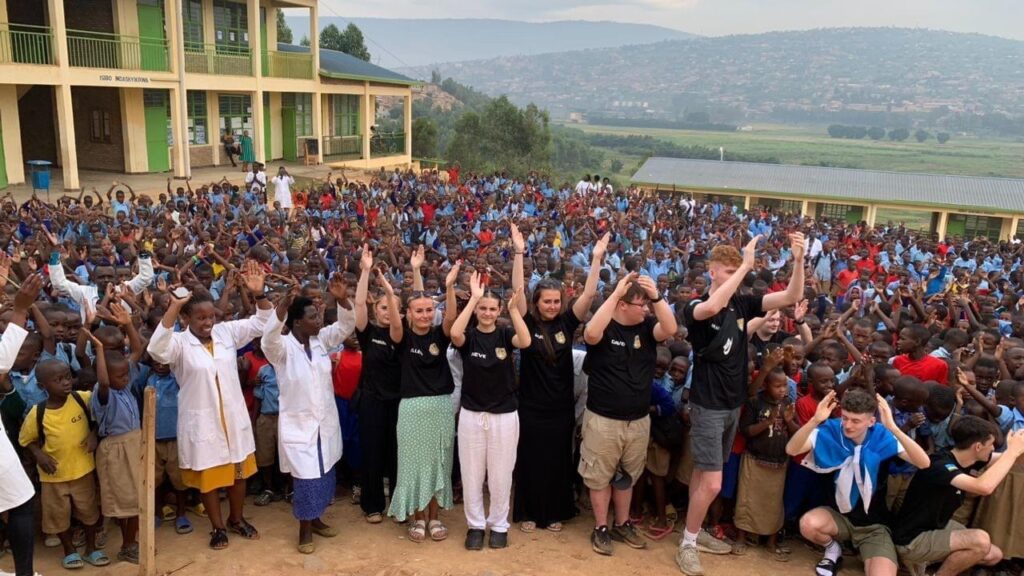

We visited two schools Wednesday morning; Batsinda and Gasanze. Some of the children we met have gone from living in holes in the ground to the top of their classes and heads of their schools. We met the students at Batsinda for morning assembly and we were overwhelmed by the welcome we received. We spent time with a few of the former street kids hearing their stories and then accompanied them to some of their classes. The students were eager to hear about our school and our lives in Scotland. We were then invited to visit the Ministry of Unity and Civic Engagement – a government Ministry devoted to national unity. We learned more about the history of the genocide and how Rwanda as a country is moving forward. We finished the day visiting the Good News Craft Group. The craft group is made up of widows and orphans who survived the genocide. They have developed skills making various crafts to help support themselves and their children. Many gifts for our families at home were purchased.
On Thursday we travelled to Kibuye, stopping at Nyanje School. Three years after the genocide, students at this school refused to be separated into tribes saying ‘Twese turi abanyarwanda’ – we are all Rwandans. Six of them were killed and the school memorial honours their bravery. We met current students from the school and then spent time visiting the touching memorial. We then continued our travels to Lake Kivu. We took boats to Bat Island where we experienced the thousands of fruit bats first hand and the stunning views.
We continued our travels on Friday. Our first stop was Bisesero where we met students and learned about the school feeding programme. We then enjoyed a game of football with them. We travelled to Birara nursery to meet some of the children on the malnutrition project. We served them lunch and milk and had time to play a few games. We then visited the Resistance Memorial where the scale of the suffering and massacre that took place there was difficult to comprehend. We then settled in on the bus for the long trip back to Kigali.
Saturday we focussed on the Street Kids’ Rescue project at Nyabisindu where we did crafts with the kids, heard their stories and played football with them. We then had the honour of visiting one of the street kid’s home where we met his mother and sisters and heard their heart-breaking story.
On Sunday we had the pleasure of spending the day at the Comfort Babies project again. Many of the kids and mums remembered us from the week before and greeted us as friends. We stopped by the market on the way to the project where we bought bags and bags of fresh tropical fruit which we washed and prepared for the 100+ children as a treat. On the way home we visited one of the mums’ business. She told us how the project helped her start her business to support her children.
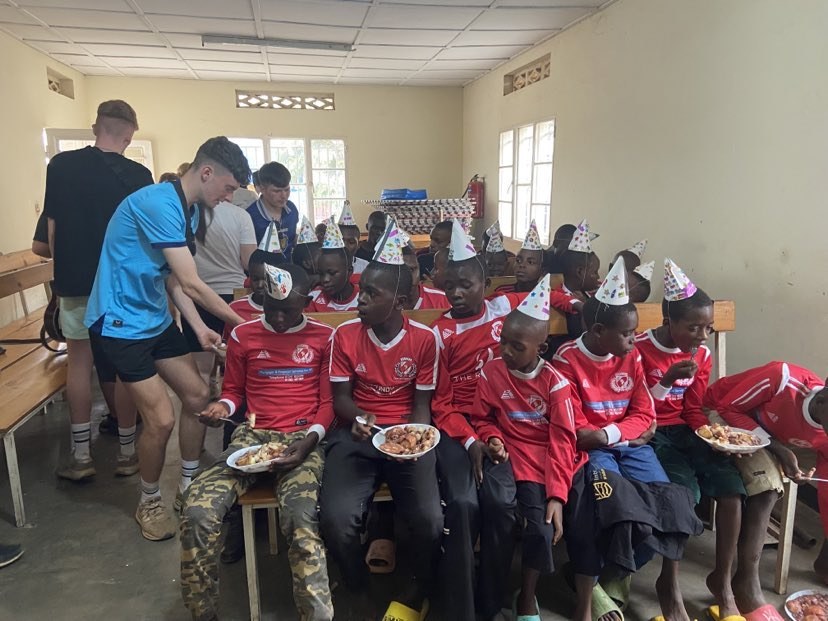
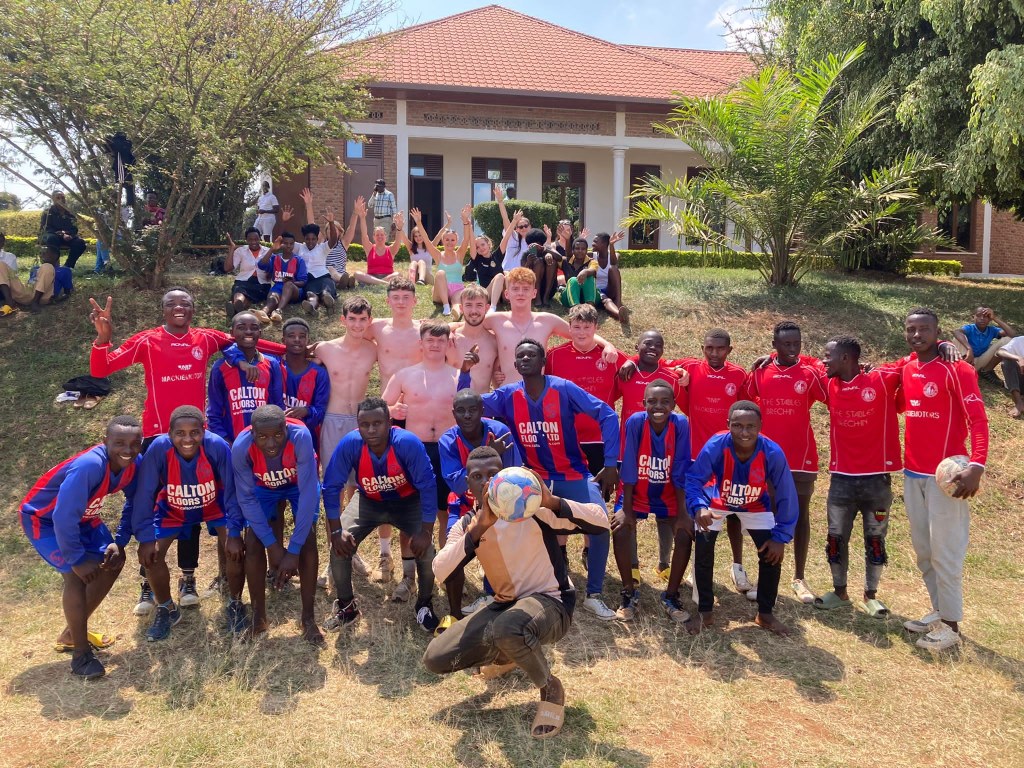
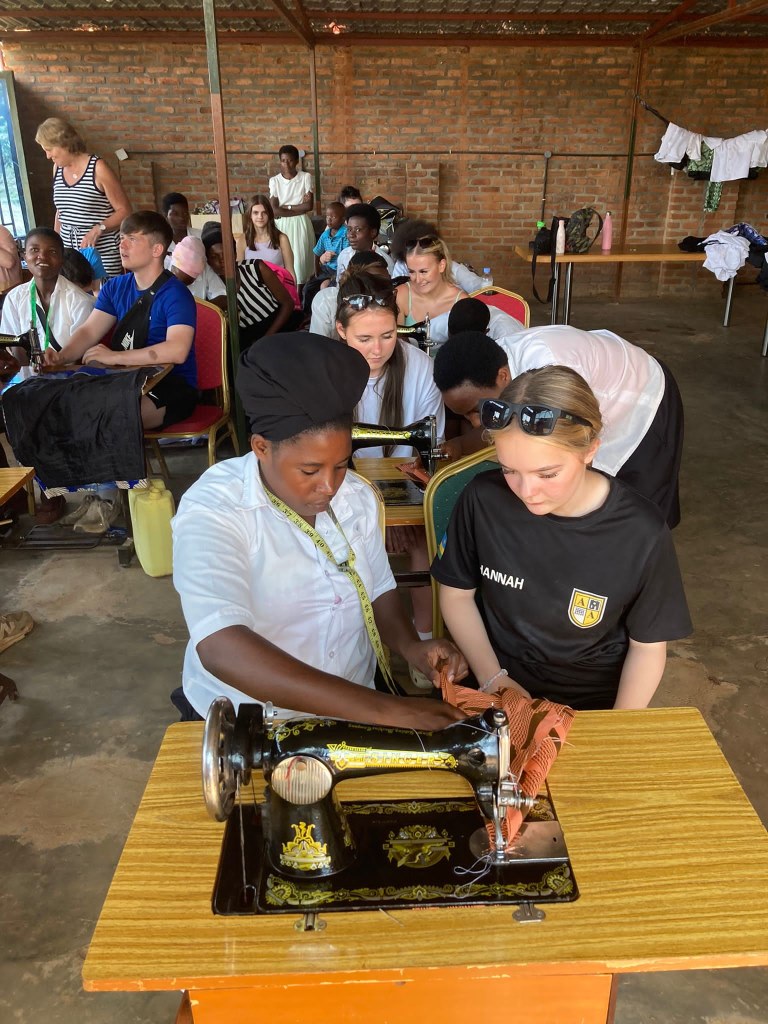
Monday was spent at the Joy Centre Vocational Training Programme. We spent time with the welding and sewing classes. The students shared their plans to start businesses together once they graduate. They showed us some equipment that had been donated and shared their hopes of starting a carpentry class. Another football game followed. We then hosted students from the School Leavers’ Development Programme at our guest house. These are young people who have graduated from the Street Kids project and are now supporting themselves with many of them now attending University. The young people were only a few years older than our students and bonds were quickly established. After sharing stories, they tried to teach us a few of their traditional dances.
We had an early start on Tuesday as we travelled to Akagera Safari Park. The park is Africa’s largest protected wetland and is home to elephants, rhinos, hippos, giraffes, crocodiles and a brilliant display of bird species.
Wednesday was our last day in Rwanda and we spent the morning back at the Transformation Centre. It was impressive to see how much had been accomplished since our visit the week before. The students immediately got stuck in helping with the digging. We then went for a special lunch at one of our guide’s house where he invited many of the people who had worked with us during our time in Rwanda. We thanked everyone for their wonderful hospitality and reminisced about what we had experienced. When then returned to the guest house to pack our things and headed to the airport for the long overnight journey home.


What stood out to all of us the most was the amazing sense of community that exists in Rwanda. The people are the most welcoming and forgiving that any of us have ever encountered. The trip has changed our students and given them a new perspective.
We received really positive feedback from our partners in Rwanda who were full of praise for the contribution, hard-work and compassion of our students and we were presented with a banner of appreciation. We have left a lasting legacy in the lives of people we worked with.
In addition to the 18 suitcases of donations that we brought with us, we were fortunate to have raised excess funds. We donated money to the Joy Centre Vocational Training programme to start a carpentry class. This will provide opportunities for young people to train for a better future and a way to help themselves out of poverty. We also donated money to the Transformation Centre to help street children escape the drugs and destructive lifestyles of their background. One of our teachers also raised funds on our return in order to send one of the women from the School Leavers’ Development Programme to university so she can achieve her dream of becoming a teacher.


